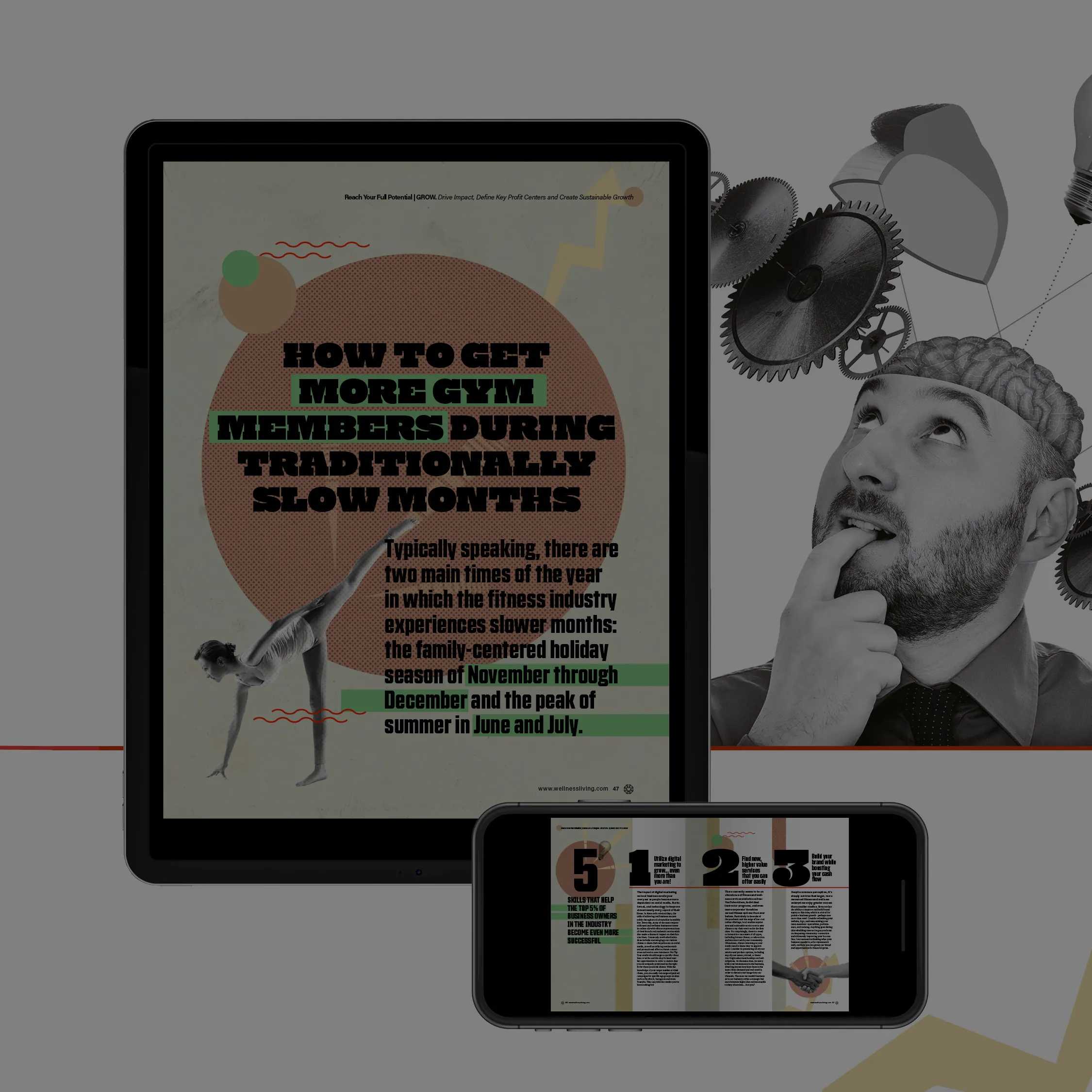What’s S.U.P.S?
HOW TO CONDUCT THE PERFECT NEEDS ANALYSIS
“People don’t buy what you do, they buy why you do it.” Simon Sinek.
That saying is particularly true in the fitness industry. To acquire a new member at your health club or fitness studio, you must get them to deeply believe in your product or service. To win the battle for belief, it is crucial to conduct an effective needs analysis in which you uncover a customer’s reason(s) to join in the first place. Without this information, it is difficult for someone to recognize or articulate why they need you, let alone set yourself up as the solution to their needs and seal the deal. Let’s look at how you can efficiently introduce the right line of questions to ultimately get a lead interested in becoming a new member.
An affective needs analysis, when done correctly, is designed to have an emotional impact. Since most people base their decisions on emotion, it is important to build a relationship based on trust. Asking powerful questions can have that impact and get to the heart of why someone might become a new member. One way to foster this emotional connection is to use the S.U.P.S. Method.
The S.U.P.S. Method
For trainers, conducting a needs analysis is nothing new or revolutionary. In fact, many refer to the old acronym, S.M.A.R.T., to lead the questions. This acronym stands for Specific goal; Measurable; Attainable; Realistic; and, Timely – key words that guide a line of questions to get at the heart of why someone is considering joining your studio or health club.
These are all solid questions to ask a potential client, but over the years some have found it difficult to ascertain all the relevant answers during a conversation and/or felt like it was too scripted. The S.U.P.S. Method is designed to shorten the line of questioning while still building a rapport that is more likely to result in acquisition. Although there are many more questions that will add to an effective needs analysis, S.U.P.S. is a solid foundation for lead and in-take questionnaires and consultations.
S (Specific Goal). “What is your goal?” should be a staple question whenever you encounter a new lead. The problem, however, is around the specificity of that goal. For example, losing weight isn’t a specific goal but losing ten pounds is. Recognize that a specific goal is measurable, and that an individual who can measure their success becomes and stays a long-term member.
U (Underlying Motivation). This is the most important question you will ever ask a lead: “WHY is that your goal?” Otherwise known as “the golden nugget,” the why is the prime motivator for that individual with that particular goal. Commonly, it may be an upcoming wedding or vacation, but when you are building rapport you will uncover much deeper reasons, and these reasons (hoping for longevity to make it to a celebration, mitigating a family history of health issues, chronic pain that prevents them from dancing or enjoying travel) will provide motivation to reach short term goals and beyond.
P (Past Experience). It is always important to ask what past experiences a person has had regarding exercise and nutrition. This information gets to the heart of consistency, habits and programs that might or might not have worked for them previously and will help you explain and emphasize your differentiating factors, which ultimately reinforces your relationship and prompts them to sign on and stay.
S(strategy): Asking a lead about their strategy is important for two reasons. First, it gives you an idea if they have a strategy in mind, what it might be and how you can support them. Secondly, you might hear that the very reason they inquired about your facility is because they lack a strategy, which provides you the opportunity to build enough value into your services that you become their solution.
Please note that active listening plays a vital role in your needs analysis. In other words, as a person is answering your question, don’t worry about what other question you are going to ask next. Be attentive. Be patient. Listen to the customer so you truly hear them and work to understand why they are reaching out to you. The better the rapport and trust you build during your needs analysis, the easier it will be for someone to say yes to your membership.

Kory Angelin
Kory Angelin is the Chief Operating Officer for Volofit and is responsible for Volofit and Tough Mudder Bootcamp franchise performance. He is an award-winning fitness business coach and two-time published author who has helped numerous large fitness enterprises around the globe build reliable brands and craft unique customer experiences. To learn more, go to www.volo-fit.com and follow on @volofit and @koryfit.






